Related Research Articles
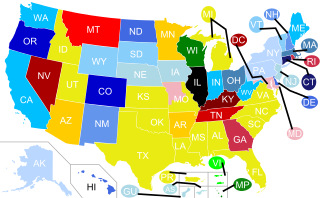
The early United States inherited sodomy laws which constitutionally outlawed a variety of sexual acts deemed illegal, illicit, unlawful, unnatural or immoral from the colonial-era based laws of the United Kingdom in the 17th century. While these laws often targeted sexual acts between persons of the same sex, many sodomy-related statutes employed definitions broad enough to outlaw certain sexual acts between persons of different sexes, in some cases even including acts between married persons.

The National Voter Registration Act of 1993 (NVRA), also known as the Motor Voter Act, is a United States federal law signed into law by President Bill Clinton on May 20, 1993, that came into effect on January 1, 1995. The law was enacted under the Elections Clause of the United States Constitution and advances voting rights in the United States by requiring state governments to offer simplified voter registration processes for any eligible person who applies for or renews a driver's license or applies for public assistance, and requiring the United States Postal Service to mail election materials of a state as if the state is a nonprofit. The law requires states to register applicants that use a federal voter registration form, and prohibits states from removing registered voters from the voter rolls unless certain criteria are met.

The rights of lesbian, gay, bisexual, transgender, and queer (LGBTQ) people in the U.S. state of Utah have significantly evolved in the 21st century. Protective laws have become increasingly enacted since 2014, despite the state's reputation as socially conservative and highly religious. Utah's anti-sodomy law was invalidated in 2003 by Lawrence v. Texas, and fully repealed by the state legislature in 2019. Same-sex marriage has been legal since the state's ban was ruled unconstitutional by federal courts in 2014. In addition, statewide anti-discrimination laws now cover sexual orientation and gender identity in employment and housing, and the use of conversion therapy on minors is prohibited. In spite of this, there are still a few differences between the treatment of LGBTQ people and the rest of the population, and the rights of transgender youth are restricted.

Lesbian, gay, bisexual, transgender, and queer (LGBTQ) people in the United States may face legal challenges not experienced by straight residents, with civil protections widely varying by state. Public opinion and jurisprudence has been changing significantly since the late 1980s.
This is a list of notable events in the history of LGBTQ rights that took place in the year 2006.

Robert Gerald Marshall is an American businessman, author and former politician, who was a Republican member of the Virginia House of Delegates representing the 13th District. His district included portions of Prince William and Loudoun counties. He is known for his failed "bathroom bill" proposal, which would have required people to use restrooms that correspond with the sex on their original birth certificates. In the November 7, 2017, general election, Marshall was defeated by nine percentage points by Democrat Danica Roem, the first openly transgender candidate elected to a state legislature in the United States.

A sodomy law is a law that defines certain sexual acts as crimes. The precise sexual acts meant by the term sodomy are rarely spelled out in the law, but are typically understood and defined by many courts and jurisdictions to include any or all forms of sexual acts that are illegal, illicit, unlawful, unnatural and immoral. Sodomy typically includes anal sex, oral sex, manual sex, and bestiality. In practice, sodomy laws have rarely been enforced to target against sexual activities between individuals of the opposite sex, and have mostly been used to target against sexual activities between individuals of the same sex.
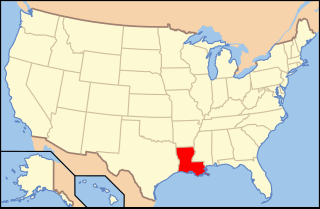
Lesbian, gay, bisexual, transgender, and queer (LGBTQ) people in the U.S. state of Louisiana may face some legal challenges not experienced by non-LGBTQ residents. Same-sex sexual activity is legal in Louisiana as a result of the U.S. Supreme Court decision in Lawrence v. Texas. Same-sex marriage has been recognized in the state since June 2015 as a result of the Supreme Court's decision in Obergefell v. Hodges. New Orleans, the state's largest city, is regarded as a hotspot for the LGBTQ community. However, Louisiana lacks comprehensive anti-discrimination laws for sexual orientation or gender identity, though some local ordinances offer broader protections than statewide law.
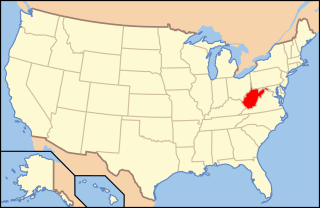
Lesbian, gay, bisexual, transgender, and queer (LGBTQ) people in the U.S. state of West Virginia face legal challenges not faced by non-LGBT persons. Same-sex sexual activity has been legal since 1976, and same-sex marriage has been recognized since October 2014. West Virginia statutes do not address discrimination on account of sexual orientation or gender identity; however, the U.S. Supreme Court's ruling in Bostock v. Clayton County established that employment discrimination against LGBTQ people is illegal.

Lesbian, gay, bisexual, transgender, and queer (LGBTQ) people in the U.S. state of New Jersey have the same legal rights as non-LGBTQ people. LGBT individuals in New Jersey enjoy strong protections from discrimination, and have had the same marriage rights as heterosexual people since October 21, 2013.
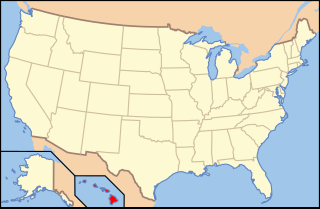
Lesbian, gay, bisexual, transgender, and queer (LGBTQ) people in the U.S. state of Hawaii enjoy the same rights as non-LGBTQ people. Same-sex sexual activity has been legal since 1973; Hawaii being one of the first six states to legalize it. In 1993, a ruling by the Hawaiʻi Supreme Court made Hawaii the first state to consider legalizing same-sex marriage. Following the approval of the Hawaii Marriage Equality Act in November 2013, same-sex couples have been allowed to marry on the islands. Additionally, Hawaii law prohibits discrimination on the basis of both sexual orientation and gender identity, and the use of conversion therapy on minors has been banned since July 2018. Gay and lesbian couples enjoy the same rights, benefits and treatment as opposite-sex couples, including the right to marry and adopt.
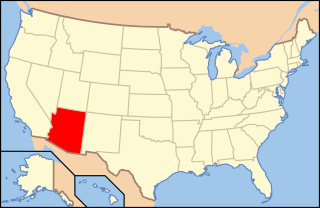
Lesbian, gay, bisexual, transgender, and queer (LGBTQ) people in the U.S. state of Arizona may face legal challenges not experienced by non-LGBTQ residents. Same-sex sexual activity is legal in Arizona, and same-sex couples are able to marry and adopt. Nevertheless, the state provides only limited protections against discrimination on the basis of sexual orientation and gender identity. Several cities, including Phoenix and Tucson, have enacted ordinances to protect LGBTQ people from unfair discrimination in employment, housing and public accommodations.

Lesbian, gay, bisexual, transgender, and queer (LGBTQ) rights in the U.S. state of Indiana have been shaped by both state and federal law. These evolved from harsh penalties established early in the state's history to the decriminalization of same-sex activity in 1977 and the legalization of same-sex marriage in 2014. Indiana was subject to an April 2017 federal court ruling that discrimination based on sexual orientation is tantamount to discrimination on account of "sex", as defined by the Civil Rights Act of 1964. The ruling establishes sexual orientation as a protected characteristic in the workplace, forbidding unfair discrimination, although Indiana state statutes do not include sexual orientation or gender identity among its categories of discrimination.
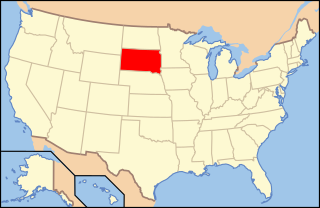
Lesbian, gay, bisexual, transgender, and queer (LGBTQ) people in the U.S. state of South Dakota may face some legal challenges not experienced by non-LGBTQ residents. Same-sex sexual activity is legal in South Dakota, and same-sex marriages have been recognized since June 2015 as a result of Obergefell v. Hodges. State statutes do not address discrimination on account of sexual orientation or gender identity; however, the U.S. Supreme Court's ruling in Bostock v. Clayton County established that employment discrimination against LGBTQ people is illegal under federal law.

Lesbian, gay, bisexual, transgender, and queer (LGBTQ) people in the U.S. state of Kansas have federal protections, but many face some legal challenges on the state level that are not experienced by non-LGBTQ residents. Same-sex sexual activity is legal in Kansas under the US Supreme Court case Lawrence v. Texas, although the state legislature has not repealed its sodomy laws that only apply to same-sex sexual acts. The state has prohibited discrimination on the basis of sexual orientation and gender identity in employment, housing and public accommodations since 2020. Proposed bills restricting preferred gender identity on legal documents, bans on transgender people in women's sports, bathroom use restrictions, among other bills were vetoed numerous times by Democratic Governor Laura Kelly since 2021. However, many of Kelly's vetoes were overridden by the Republican supermajority in the Kansas legislature and became law.
Kansas House Bill 2453, also known as the Religious Freedom Act, is a piece of legislation proposed in the state of Kansas that would allow people to refuse to provide services in any way related to any relationship under the name "marriage, domestic partnership, civil union or similar arrangement" if their objection to doing so is based on their religious beliefs. Representative Charles Macheers (R-Shawnee) introduced the legislation on January 16, 2014. It passed in the House but was not taken up by the Kansas Senate.
Arizona SB 1062 was an Arizona bill to amend an existing law to give any individual or legal entity an exemption from any state law if it substantially burdened their exercise of religion, including Arizona law requiring public accommodation.
In the United States, the history of same-sex marriage dates from the early 1940s, when the first lawsuits seeking legal recognition of same-sex relationships brought the question of civil marriage rights and benefits for same-sex couples to public attention though they proved unsuccessful. However marriage wasn't a request for the LGBTQ movement until the Second National March on Washington for Lesbian and Gay Rights in Washington (1987). The subject became increasingly prominent in U.S. politics following the 1993 Hawaii Supreme Court decision in Baehr v. Miike that suggested the possibility that the state's prohibition might be unconstitutional. That decision was met by actions at both the federal and state level to restrict marriage to male-female couples, notably the enactment at the federal level of the Defense of Marriage Act.
Indiana Senate Bill 101, titled the Religious Freedom Restoration Act (RFRA), is a law in the U.S. state of Indiana, which allows individuals and companies to assert as a defense in legal proceedings that their exercise of religion has been, or is likely to be, substantially burdened.
The history of LGBT residents in South Dakota spans back to precolonial Native American times, but has become much more visible in the 21st century.
References
- ↑ "LIS > Bill Tracking > HB1414 > 2015 session".
- ↑ "Virginia House Bill 1414". Virginia General Assembly.
- ↑ "Virginia Christian Alliance: 'Every pastor should fear for his job' if Conscience Bill fails". WAFF. Archived from the original on 2015-01-17. Retrieved 2015-01-11.
- ↑ Stern, Mark Joseph. "A New Virginia Bill Would Let Schools, Hotels, Restaurants, and Hospitals Turn Gays Away".
- ↑ Hanna, John (February 18, 2014). "Kansas Senate won't consider gay couples discrimination bill". Topeka Capital-Journal. Retrieved February 19, 2014.
- ↑ Santos, Fernanda (27 February 2014). "Arizona Governor Vetoes Bill on Refusal of Service to Gays". New York Times.